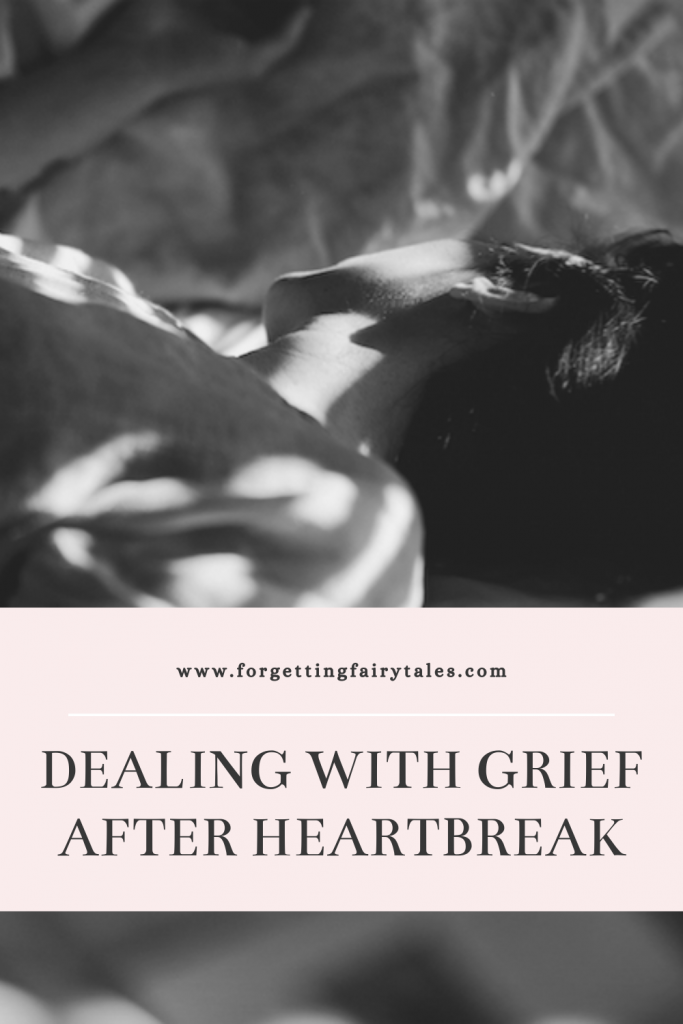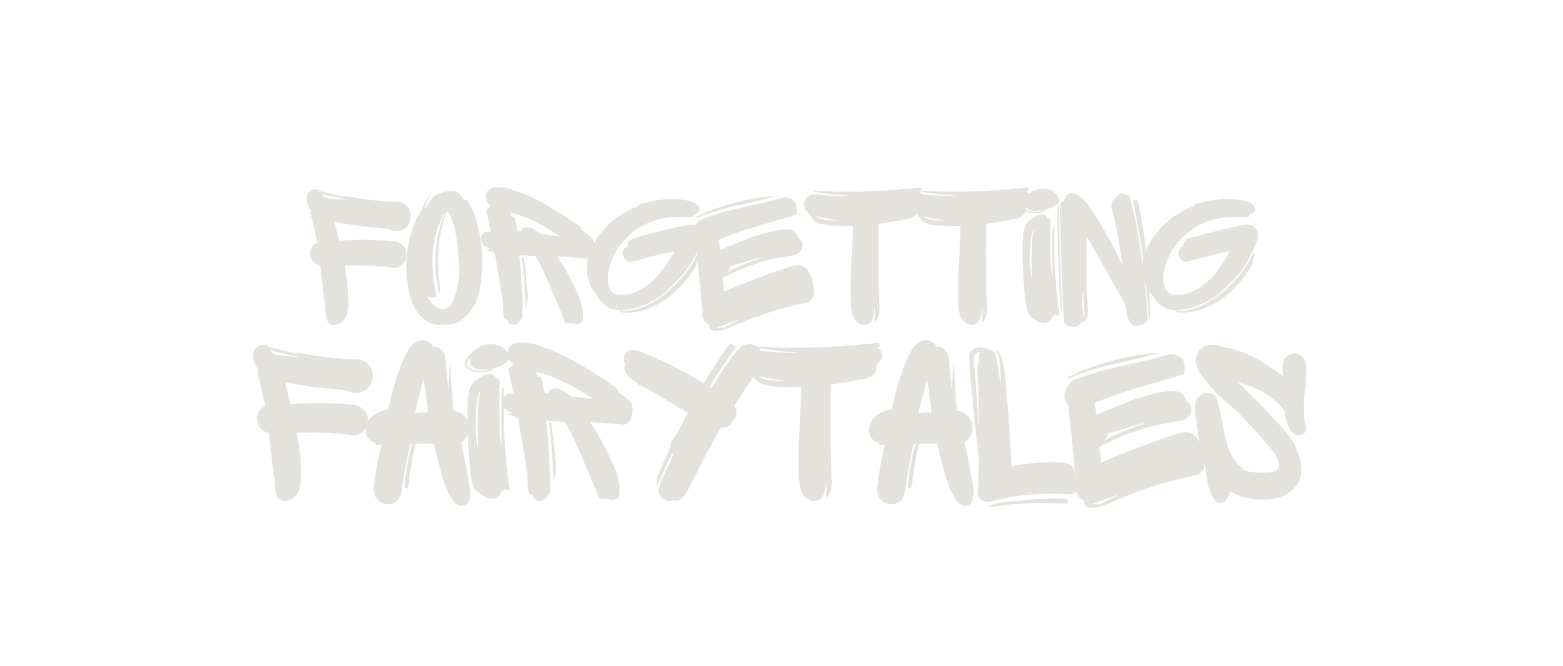“Grief is like the ocean, it comes in waves, ebbing and flowing. Sometimes the water is calm, and sometimes it is overwhelming. All we can do is learn to swim…”
When a break-up happens, it can feel like your whole world has been turned upside down. You don’t know what to do with yourself. You feel like you can do nothing at all. And in many ways, you can’t. Because – initially – the emotions are so overwhelming. Life as you know it has suddenly changed. There’s the shock. The fear. The emptiness… Hopelessness even. And pain – a whole lot of pain.
After all, for whatever length of time that you were with this person, they played a very special part in your life and now, just like that, they’re gone. An empty void left in their place. One that’s far greater than just missing the person, because you lose everything came with them too.
From the sense of security, to your shared hopes, dreams and plans; the life you had together to everyone who was part of your mutual circles. You also lose the bond and connection – the feeling of being in love and being loved in return. So there’s no surprise that it’s so difficult to deal with now all of that has been taken away.
There is a huge, undeniable sense of loss. But I promise you, it will get easier. Slowly but surely, you will find your feet again. It may mean taking baby steps – both backwards and forwards – but eventually you will get back onto the right path again and this time, it will be on the one you are really meant to be on.
Dealing with grief after heartbreak is one of the first stages of recovery, so let’s understand a little more about it, before then looking at what we can do to make it easier.
Understanding The Stages of Grief:
When we talk about grieving the loss of a relationship, we can actually relate it to the stages of grief after death, outlined by Psychiatrist Elisabeth Kübler-Ross. There is, like we said, still an immense loss in your life. Only unlike an actual death, your ex is still walking around in the world which makes some of these stages even more difficult to move past… and more complicated!
The key stages of grief are denial, anger, bargaining, depression and acceptance – so this is what I want to explore a little further for the time being as it’s a good starting place that is fairly easy to break down and understand.
When we use it to recognise where we are in the process and what’s happening on our own personal journey to recovery, we are to then know how we can better help ourselves to move forward. Grief however is different for every person. We all experience it after heartbreak, but to different levels and for different lengths of time.
For instance, not everyone will experience all five stages, they may come in a different order, or you might get stuck on one stage for longer periods of time, unable to let it go or move past it.
Sometimes we can even experience these stages whilst still being in the relationship – which can help you to move on faster. Grief is not simple, nor linear. But we can take a lot away with a little more knowledge about it. So let’s dig into these stages a little further…
STAGE 1: Denial
It’s happened, suddenly things feel very real and we don’t want them to be – so as a defence mechanism to try to help us numb the intensity of the situation, we often first fall into denial.
This is where we tell ourselves it’s not happening, or trying to convince ourselves it will still all work out, everything will be okay again, “it has to be…” You see it as a break, you think you will inevitably still get back together.
Perhaps this has happened before and you did then, so surely you must do again now. Even if you know the break-up is the right decision, you still don’t want to face the reality of it so you look for other ways around it.
In this stage you’ll still probably still be talking to your ex, checking up on them on social media. You still expect them to care for you and you speak to them the same way you used to – almost like things haven’t changed, this is “just a rough patch” that you’ll work through. Only it’s not. Not really.
When this starts to sink in, you might throw yourself into other things as a distraction or lie in bed all day, telling yourself it’s not real. But when the truth hits home and you realise there’s no going back, all of the emotions you’ve been hiding will begin to rise and you’ll be confronted with a lot of sorrow you’ve denied.
STAGE 2: Anger
Where denial may be considered a coping mechanism, anger is a masking effect, in an attempt to hide much of the pain that you carry. It typically comes once denial is released and things become very real.
“How dare he / she do this to me? Why don’t they care anymore? They’ll realise how stupid they were and what they’ve lost…” Which may or may not be true, but in all honesty – the anger and outrage is only covering up the scarier, more vulnerable thoughts and emotions that you feel inside – the ones that make you doubt yourself, question your worth or fear whether you will ever be loved again.
Your anger may be directed solely at your ex, or it may come out on other things or people. Everyone is different, and everyone can experience it to different degrees – from pure rage and fury, right the way down to simmering bitterness, frustration or resentment.
It’s not the prettiest of emotions, but it’s nothing to feel ashamed of – particularly once you’re able to find healthier ways to get it out. The worst thing you can do is keep it bottled in, because it won’t stay in there!
STAGE 3: Bargaining
Like with the grief felt with the death of a loved one, heartbreak can also make you feel very vulnerable and helpless. It makes you question things, overthink them even, because you’re desperate to have control again, to have some power over the situation or how you feel.
You may find yourself asking questions like, “what if I’d have done this,” or “if only this would have happened…” then coming up with ideas for what you can do now. You look for solutions, ways you can change, things you can compromise on to try to make it better.
Anything, everything, because the thought of being without your ex – whom you have become so dependent on – is quite simply just intolerable. You get determined, decide to take action because you will make this pain go away, at any cost.
The truth is, it’s all based on false hope. When things don’t work, you may start to fall back on guilt-tripping or sending empty threats. But you’re really not thinking clearly. The pain is just so intense, you’re trying to find a way out of it (even if in the long term, you know that getting back together with this person is not the solution.)
At this stage, you may not even realise you’re bargaining. You may have put on such a convincing argument, you’ve actually told yourself that the breakup was the wrong thing. Or, perhaps the denial is still partly there.
You feel empowered and decide to speak to your ex to try to gain ‘closure’ – only you know deep down this is just an excuse to see them again and you really hope you’ll be able to convince them to give you another shot.
The bargaining stage is therefore a bit of a dangerous one – that has the potential to set you back and complicate things further. So it’s super important you recognise when you’re in it and don’t take any drastic actions too fast.
Bargaining will only briefly distract from the experience of loss anyway. Reality inevitably comes crashing down, over and over again and this is often where depression hits…
STAGE 4: Depression
When the reality of the breakup sinks in and you realise there really is no going back – this is it now where you will feel immense sadness that can even go so far as depression.
It’s situational depression which means these feelings usually resolve within six months, but it’s just as challenging. In fact, one study found that even normal post-breakup emotional states closely resemble clinical depression. So it’s a big thing.
You realise that your ex really is gone, and they’re not coming back. It hits you hard. You’re likely to feel this at multiple times in the grieving process. Some days will be better and worse than others. But depression is actually a good sign, especially at this stage.
It’s kind of your lowest point, when you’re finally being honest with yourself – before you then are able to rise back up again. You need to experience sadness after heartbreak, it’s normal. So the very fact that you’re allowing yourself to feel it now, means that actually, you’re probably one step closer to accepting it.
At this stage you’re simply trying to deal with the adjustment. You have a lot to get your head around and your life may be temporarily put on hold as you lose interest in the things you would normally enjoy and even normal every-day tasks feel like a struggle. For me, at this stage, I felt like I was alive but no longer living. But it’s all part of the healing process.
Please note: if your symptoms get worse, feel unbearable or you start to feel suicidal, get professional help immediately. There are always things that can be done to help. Do not feel like you have no options or are completely alone.
STAGE 5: Acceptance
Last but not least, you will finally reach the point of acceptance. This is not necessarily a happy or uplifting stage of grief. You won’t suddenly just feel happy again. There will still be good and bad days and it doesn’t mean you’ve moved past the loss.
It does, however, mean that you’ve accepted it and are learning to live with it. You know that it’s part of life and are working slowly to re-building things back up for yourself. In time, from here, you’ll also experience re-directed hope.
This is where your beliefs change from feeling like you need that person in your life in order to be happy, to knowing that actually you might just be okay without them after all!
Dealing With Grief After Heartbreak:
As I mentioned, this isn’t a straight forward process so don’t worry if your grief doesn’t follow this exact order. Just understand that these stages loosely exist and there is a process you will be moving through – one that’s unique to you!
Right now, it may be difficult for you to see the light, but trust me – you will get through this. The worst thing you can do is try to shy away from it. Whether you like it or not, you have to deal with grief after heartbreak. You can’t try to fight it because it won’t take it away. I know this better than anyone.
In fact, one of the reasons I stayed in my last relationship for so long, tolerating the things that I did, was because – in all honesty – I was so damn fearful of this first stage of the breakup. I really believe there is no pain like the one of heartbreak, and the grieving process following it undoubtably knocks you around. You can’t instantly make yourself feel okay again.
It’s like if you dropped a mirror and suddenly it wasn’t the same anymore – it was broken. You couldn’t then just push all the pieces together and think it would be fixed. You’d need a little time, a little patience and some GLUE (i.e. inner strength!) to build it back up again. The bigger the break, the more bits there are to re-piece which usually – although not always – means the more time it takes to make it whole again. But that’s okay. Because no matter how broken it may be, it’s always possible to put back together – even if this time, it’s made into something new!
Although it hurts like hell at the time, the pain of grief is precisely what helps you let go of the old relationship and move onto something better and new. No matter how strong your grief and how overwhelming your emotions are, it won’t always feel like this, I promise.
A few things that I think are important to remember, or worth trying when it comes to dealing with grief after heartbreak in the meantime…
– You Have To Keep Talking About It
Not just about what happened, going over the same things isn’t what’s important, but more-so trying to process how you feel. And why you feel that way. Maybe things ended particularly badly, or out of the blue. Or perhaps you knew it was coming, but that doesn’t necessarily make it any easier. There’s bound to be loads of things going through your head – some things that are true and accurate; others that definitely are not. So challenge things a little, try to see them for what they are. By talking about it, it’s a way of making sense of it all more. And the things that you can’t make sense of – that’s okay too. You don’t need all the answers, not now, and maybe not ever. Baby steps. See how things all unfold. But at no point should you bottle anything up. There is always someone there to speak to – whether that’s a friend, family member, a helpline, a therapist, or even stranger. You’re not alone in this.
– Try Writing About It Or Finding Another Outlet
Another alternative to talking is writing. Ideally you actually want to do both, because the different angle that writing gives you is it’s far more personal. It’s there for you and you only, so you’re able to be completely honest with yourself – seeing things for how they are instead of how you wanted them to be or how you think they should have been. You can say anything. No-one’s going to judge you because no-one will even know. And certainly don’t judge yourself. Be your own best friend and support yourself… As cliche as that sounds!
Setting up this blog was one of my outlet after the break-up. It gave me focus. It gave me something positive to channel my energy into. And the prospect that I could turn this all around and use my experiences to in turn help others – well that actually excited me. Which was an emotion that I struggled to feel during the initial stages of grief. So explore your outlets too. It could be writing. Or it could be something like drawing, painting, writing music, singing, reading, hiking, singing even. There are an endless list of possibilities. But start with something!
– Don’t Be Too Hard On Yourself
There will come a point where you have to give yourself a talking to and say, “enough is enough!” but for now, give yourself the time and permission to not be okay. Feel what you have to feel, without guilt or shame. It’s going to mean you’re not quite yourself, it’s going to mean you’re not top of your game. Don’t expect yourself to function properly, or to be productive or to live how you used to live before. Right now, even small accomplishments -like getting showered and going out – are going to be a big deal. It won’t be like this forever, but right now, know that what you’re going through IS a big deal so be gentle with yourself.
– Have A Little Faith
Know that you won’t be stuck in this dark place forever. In fact, when it feels like these emotions are becoming too hard to bear – that just means that your turning point is coming. Your mind is a remarkable thing, and your resilience will surprise you. You will bounce back from this, I promise you. So have a little faith, keep pushing through and celebrate every victory – both big and small!
“Sometimes when you’re in a dark place, you think you’ve been buried, but actually, you’ve been planted…”
Sending you the strength and support to help you through this difficult time.
Lots of love,
Ell_xx

Recommended Reads

